
Bladder Cancer
Latest News
Latest Videos
More News

The Food and Drug Administration approved Udenyca Onbody, an administration device for Udenyca, a biosimilar of Neulasta.

The Food and Drug Administration recently approved treatment for some patients with neuroblastoma, kidney cancer and bladder cancer. Elsewhere, a cancer vaccine made headlines for the treatment of patients with melanoma.

An expert spoke with CURE® about telehealth when it comes to ostomies within patients with bladder cancer, and overall within patients and survivors.

The Food and Drug Administration has approved Padcev plus Keytruda to treat patients with locally advanced or metastatic bladder cancer.

The FDA accepted a priority review for the supplemental Biologics License Application of Opdivo with chemotherapy for untreated patients with unresectable or metastatic bladder cancer.
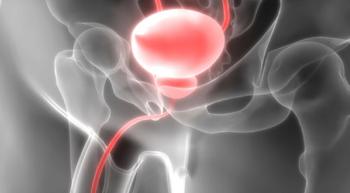
The FDA has granted priority review for the Padcev-Keytruda combination in untreated patients with metastatic bladder cancer, according to a news release.

Analysis of molecular subtypes of muscle-invasive bladder cancer can predict if a tumor is likely to respond to chemotherapy before surgery but is not associated with differences in survival.
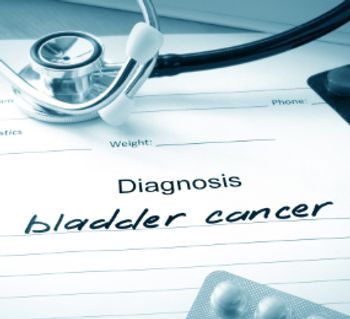
Balversa improved outcomes for patients with high-risk bladder cancer, but may only work for those with a certain genetic alteration, an expert explained.

For the first time, a drug combination (Padcev plus Keytruda) outperformed frontline chemotherapy for patients with locally advanced or metastatic urothelial carcinoma.

Adding Opdivo to a standard-of-care chemotherapy regimen in patients with unresectable or metastatic urothelial carcinoma improved progression-free and overall survival.
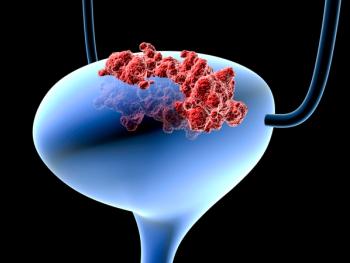
A recent phase 3 trial revealed that the primary endpoint was met with Keytruda for patients with localized muscle-invasive urothelial carcinoma and locally advanced urothelial carcinoma.

Padcev plus Keytruda may improve survival outcomes for some patients with advanced urothelial cancer, according to preliminary data.

Balversa has been submitted to the FDA for approval to treat patients with locally advanced or metastatic urothelial carcinoma.

“I treat all of my patients like my friends and family,” said Dr. Ravi Munver of Hackensack University Medical Center, who first met Peter Kahan as his honors physics teacher more than 35 years ago.
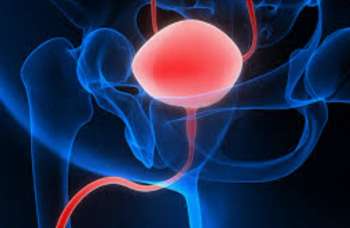
Patients with nonmetastatic node-positive bladder cancer may have similar survival rates whether they underwent treatment with surgery or radical dose radiotherapy.

Prehabilitation can help patients become eligible for certain cancer treatments, or also help them recover from therapies, while also improving their overall health and fitness, an expert explained.

From Eric Braeden announces that he is cancer free to Tom Jones dying from cancer, this is what’s happening in the oncology space this week.

Findings from the phase 3 ATLAS and ENVISION trials reveal a non-surgical way to possibly benefit patients with low-grade, intermediate- risk non-muscle invasive bladder cancer.

A phase 1 trial just launched, and will evaluate IO102-IO103 plus Keytruda in patients with bladder cancer whose disease is unresponsive to BCG therapy.

We recently asked our audience of patients, survivors and caregivers about the ongoing cisplatin and carboplatin shortage. Here’s what they had to say.

A randomized clinical trial, CHEERS, determined that the combination of stereotactic body radiotherapy (SBRT) and immune checkpoint inhibitors (ICIs) were ineffective as treatment for patients with advanced solid tumors.
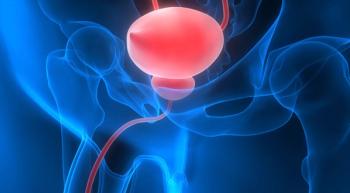
Immunotherapy with Opdivo plus cisplatin-based chemotherapy improved overall survival and progression-free survival in patients with unresectable or metastatic urothelial carcinoma.

A chemotherapy shortage is resulting in altered treatment plans for many patients with cancer. CURE® spoke with experts about what that means for patients — and what they can do about it.

Opting for telehealth appointments can make a big financial difference for rural-residing patients receiving urologic cancer care.

Treatment with a CAR-M cell therapy plus Keytruda is being assessed in a phase 1 study in patients with HER2-overexpressed tumors.














